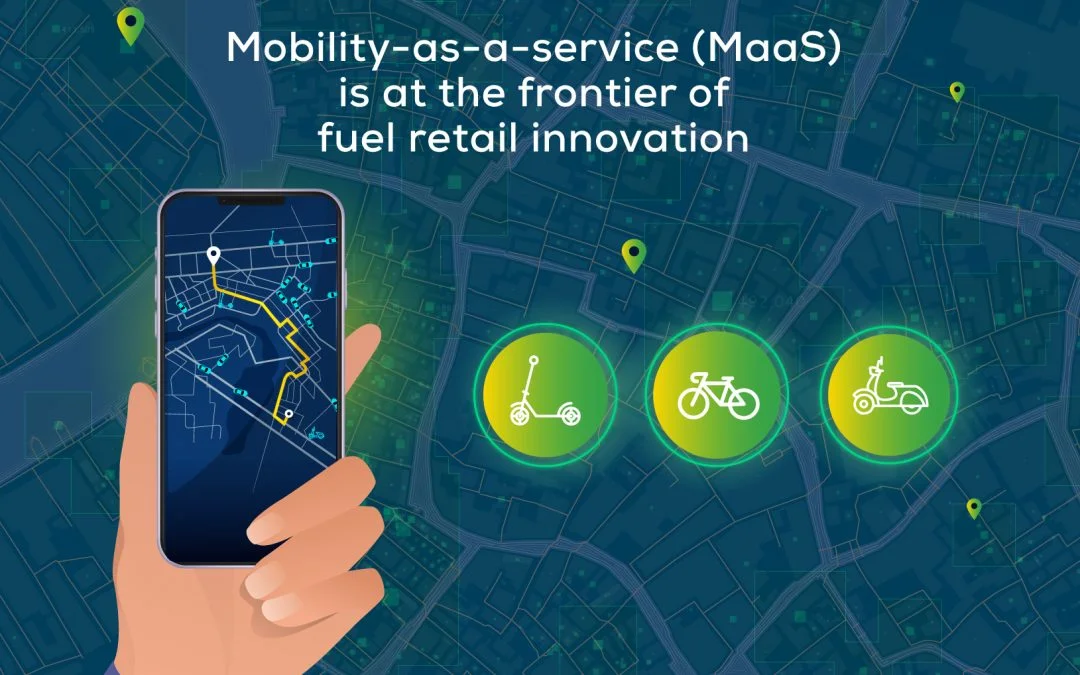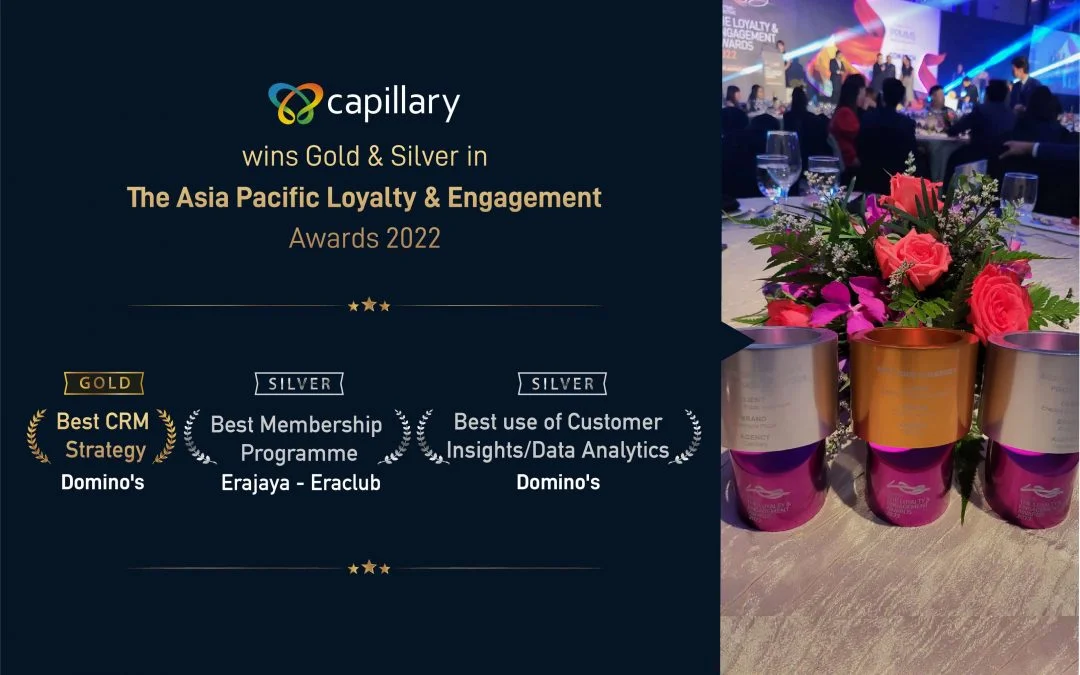- Design industry shaping loyalty programs
- Integrate easily and go live quicker
- Deliver hyper-personalized consumer experiences
Blue Rewards from Al Futtaim Group Shares Loyalty Success Stories and Evolution. Watch Podcast >
Capillary Announces 2nd Annual Captivate 2025 Summit: Transforming Loyalty Management with New AI Tech Read more >

The fuel retail industry is undergoing a significant transformation, driven by Mobility-as-a-Service (MaaS) and digital innovation. As customers seek more seamless, tech-driven experiences, retailers must embrace mobile loyalty apps, cloud-based platforms, and retail mobility solutions to stay ahead.
From automated fueling to connected MaaS ecosystems, fuel retailers are leveraging digital transformation to enhance convenience and customer loyalty. But what does the future of fuel retail truly look like? This article explores how MaaS technology, fuel retail automation, and innovative mobility solutions are shaping a new era of customer engagement and operational efficiency.
As advanced electric self-driving technologies transform the motor industry, mobility-as-a-service is at the frontier of fuel retail innovation. With a plethora of efficient digitized ride-hailing or sharing platforms growing globally, both public and private transportation are more convenient than ever.
A recent Grand View Research report forecasts that the shared mobility market will reach $675 billion by 2030, driven by retail mobility solutions that cater to urban demand.
A major shift in consumer behavior is fueling MaaS adoption, transitioning from costly vehicle ownership to efficient shared mobility solutions. The future of fuel retail is evolving toward sustainable, alternate fuel consumption, where MaaS plays a pivotal role in reducing the carbon footprint.
Younger populations, in particular, are opting for electric and alternate fuel-powered MaaS options, leveraging digitized ride selection and payment integrations. This shift is accelerating the integration of MaaS into fuel retail, particularly in a post-pandemic world where convenience and sustainability take precedence.
With nearly two-thirds of the world’s population expected to live in cities within the next decade, consumers will increasingly prioritize economical fuel expenditure and shared mobility solutions over traditional ownership.
The most significant enabler for fuel retailers in this shift is digital transformation. By embedding their services within the MaaS ecosystem, retailers can streamline operational efficiencies, enhance customer engagement, and create smarter fuel retail solutions.
Let’s explore a few leading global examples that showcase how MaaS is shaping the future of fuel retail.
Globally, while Uber and Lyft pioneered to set MaaS into motion, Finland and Norway made major strides in terms of disrupting traditional mobility services through apps like Whim in Helsinki and the Public Transportation Authority (PTA) Kolumbus in Stavanger respectively.
Through smart mobility systems, these nations have integrated not just ride-hailing but multi-modal transport options, including cycling, trains, buses, taxis, and car-sharing networks. Both private as well as public commute options are now at the customers’ disposal, all they have to do is make a selection of pick up and drop locations, timings and mode of payment, before the smart mobility system fulfils the order in a fast and efficient manner.
The principle is to meet varied mobility and transport needs with maximum choice, convenience, and flexibility.
MaaS platforms like Whim offer end-to-end trip planning, seamless booking, and optimized route execution, making it easier for users to leave behind private vehicle ownership.
Additionally, electronic ticketing and payment services now account for real-time fuel requirements, enabling users to track consumption versus expenditure. This integration benefits both:
Security remains a top priority, with unique identity tokens for transactions, and a robust loyalty rewards engine to encourage repeat purchases and customer retention.
Across Europe, cities like Paris, Eindhoven, Barcelona, and Vienna are advancing peer-to-peer MaaS networks, strengthening omnichannel customer experiences.
To facilitate a strong CRM and a user-centric mass mobility paradigm, fuel retailers are also jumping onto the bandwagon. Their integration within the ecosystem ensures that forecourts serve as one-stop destinations for varied MaaS-related services.
The idea is to equip apps like Whim with smoother operations so that the customer journey is optimized for faster refills. Alongside making fuel an app offering, a host of loyalty benefits, such as targeted bundle offers, promoting private label products, etc., are activated in tandem. This determines the future of fuel retail as more rewarding and tailor-made as per changing customer MaaS preferences.
The rise of autonomous vehicles (AVs) is accelerating the evolution of Mobility-as-a-Service (MaaS). Both new-age disruptors like Uber and traditional OEMs such as Toyota are pioneering self-driving innovations to redefine urban transportation.
A significant portion of these autonomous shared vehicles will be electric, making transportation more cost-efficient and reducing dependence on traditional fuel sources. This shift presents both challenges and opportunities for fuel retailers.
This means that fuel retailers will have to quickly adapt by transforming fuel stations into recharging facilities for electric vehicles. And a host of personalized loyalty programs will improve the customer journey to ensure that the integration of MaaS with AVs is seamless.
As fuel retail evolves, customization and omnichannel experiences will become more crucial for MaaS providers. E-commerce integration and data-driven insights can help fuel retailers cater to the unique needs of MaaS customers by offering:
By leveraging the right tech stack, fuel retailers can establish an agile, omnichannel presence that keeps pace with the evolving MaaS-driven consumer behavior.
To maximize profitability in the MaaS era, fuel retailers must tap into new value pools by transforming their existing asset networks. Key areas of growth include:
The future of fuel retail is electric, automated, and mobile—far beyond its traditional role. To stay ahead, fuel retailers must align with the MaaS revolution, ensuring their services evolve alongside the next generation of urban mobility.
The future of fuel retail is electric, automated, and mobile; far beyond its traditional role. To stay ahead, fuel retailers must align with the MaaS revolution, ensuring their services evolve alongside the next generation of urban mobility.
To know more about the fuel retail industry and the dynamics of fuel retail loyalty in future, connect with our team of experts here.
Mobility as a Service (MaaS) integrates various transportation services into a single accessible platform, benefiting fuel retail businesses in Europe and the USA by enhancing customer convenience and streamlining operations.
B2B fuel retailers in the UAE can leverage MaaS to improve operational efficiency by optimizing fuel delivery routes, reducing costs, and providing better service to customers.
Key features of MaaS platforms for fuel retail businesses in India and Singapore include real-time data analytics, route optimization, mobile payment integration, and customer engagement tools.
MaaS impacts the fuel retail market in Saudi Arabia and Qatar by enabling seamless integration of transportation services, enhancing customer satisfaction, and driving business growth through innovative service offerings.
The commercial benefits of MaaS for fuel retail businesses in Australia and Canada include increased customer loyalty, higher sales through personalized offers, and improved operational efficiency through technology-driven solutions.

December 24, 2018 | 4 Min Read
Exponential advances in technology, the proliferation of dig

February 11, 2014 | 4 Min Read
At Capillary, we strongly believe that we’re known by the

August 24, 2022 | 4 Min Read
Capillary was adjudicated the winner for its work at the Loy